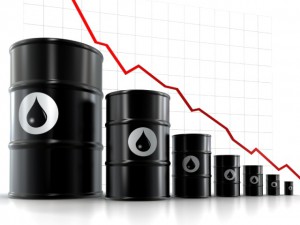2014: Oil lows and temperature highs.
Scientists confirmed a couple of days ago that 2014 was the hottest year ever recorded, adding itself as one of the 14 hottest years on record, 13 of which have happened in the 21st century.
If the coffin of climate change denial has space for any more nails, perhaps this could be the final  one.
one.
Politicians are feeling the heat (pardon the pun), with pressure to act mounting from all directions. Scientists are speaking out, economists are warning that the costs of climate change will make Hurricane Katrina clean up costs look like pennies, and people are coming together like never before in a growing movement to demand a safer, cleaner energy future.
And President Obama has the trump card in his pocket: A rejection of the Keystone XL pipeline. Putting the brakes on Keystone would do much more than put a serious dent in high-risk dirty tar sands production. It would signal that the status quo is over. That we live in a world that seriously questions major fossil fuel developments and infrastructure, and that asks the climate question: Can we afford massive new high carbon projects that lock in growing greenhouse gas emissions? and answers it honestly. No, we can’t.
The collapse of global oil prices that also marked 2014 is a critical reminder that oil is volatile. If we insist on building our economies on oil than we should know to expect this type of thing. Norway has squirreled away a massive trillion-dollar fund for such an occasion, and hopefully will use it to continue to diversify and build cleaner, safer energy projects.
Alberta, Canada on the other hand, balked at a serious sovereignty fund and is now facing a recession according to the Conference Board of Canada.
So how should politicians respond to the rising pressure for climate action? In fact there are several win-wins here:
- Put a price on carbon. Oil prices are low for consumers: get a carbon price in place. Economists have been begging for it for years, and The Economist is practically salivating at the opportunity current prices present (congratulations are owed to the province of Ontario, which is doing just that).
Winners: The climate and the economy.
- Don’t let this be a fleeting lesson. Oil prices are unstable – oil is a volatile commodity. Solar, wind, tidal etc. on the other hand are not. Let’s use this as the window when we rebuild energy markets by installing serious capacity in energy that won’t lock us into high-risk volatile markets. Cost curves for renewables are falling, and it is clear that the jobs in a renewable energy economy are longer-term and not tied to a volatile market.
Winners: The climate and the economy.
- Kick the subsidies habit. Both consumer and producer subsides should be on their way out. According to the International Energy Agency, phasing out fossil fuel subsidies could take us close to halfway to a global carbon target that gives us a shot at staying below 2 degrees Centigrade:
Producer subsidies: Projects like the Alberta tar sands or Arctic oil have break-even prices of around double the current oil price (and more). Taxpayers shouldn’t be doing anything to try to keep nonviable high cost, high carbon oil profitable. G20 countries have been promising to end these subsidies for years now.
Consumer subsidies: The difference between real price and subsidized price is significantly smaller right now making it a good time to cautiously scale back on consumer subsidies and consider other programs that actually benefit the most vulnerable in countries prone to these high subsidies (which are shown to disproportionally benefit the wealthy).
Again for the win: The climate and the economy.
Global temperatures were the highest ever recorded last year. That is a big deal. It shouldn’t take anything more than indisputable evidence and increasingly devastating and expensive warnings in the form of extreme weather to drive governments to act. However, if they need an extra incentive, (a silver lining to record low oil prices even), it can be found in the form of meaningful action to reduce Big Oil’s free reign over the economy and the atmosphere.
It is time for a new way of looking at energy and the economy. We need systems that build safe, clean, and renewable ways of living, not systems that condemn the climate, steamroll the rights of First Nations and other front line communities, all the while making Big Oil richer.
Join us in demanding better, starting with a Presidential rejection of the Keystone XL pipeline.
P.S. Come and hang out with us online at 9pm ET today (Tuesday January 20th) for the State of the Union address and share first hand reactions to the President’s thoughts on climate and energy.
